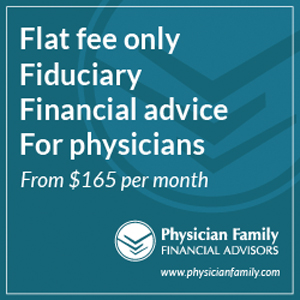As years go by, we learn many lessons from the school of hard knocks. Although some of these lessons we could have learned from someone who had previously learned the lesson, such as don’t grab an electric fence. If we learn from someone else’s experience, we won’t get the hard knocks that come with learning the lesson.
Other lessons we must experience for ourselves because we don’t believe that the situation pertains to us when given the warning, such as life is a lot more enjoyable with less on our schedule. We think the person who gave this advice couldn’t handle a busy schedule. But since we think we are different and invincible, and we can handle a lot more than everyone else, we don’t listen to the advice and must go through the hard knocks ourselves. Those are self-inflicted wounds. Next time, maybe we will listen.
We become wiser as we age and have more personal experience to draw from. We can become wiser at a younger age if we take to heart the lessons those who have gone before us are teaching. When wise people tell us to NEVER buy a house using an adjustable-rate mortgage (ARM), listen to them, follow their advice, and don’t buy a house using an ARM. I realize you are positive you can swing the payments to get that more expensive house you couldn’t afford without using an ARM. Warnings come from experience. Experience is often painful. A painful experience need not be repeated by the educated.
Following are four things I hope you will learn from me without experiencing the hard knocks yourself.
Debt is not your friend.
Most physicians pay for their long training process by borrowing money. We often borrow a lot of money throughout our many years of training, but do not experience the pain of having to pay it back until we are an attending. We have disassociated the borrowing with the pain of paying it back. I call this Debtabetic Neuropathy: becoming numb to the effects of debt. You can learn all about Debtabetic Neuropathy in my award-winning book, The Doctors Guide to Eliminating Debt.
We also suffer from what I call Alzheimer’s Debtmentia; the condition of not being able to remember what it was like before debt entered our lives.
When we have both Alzheimer’s Debtmentia and Debtabetic Neuropathy, we can dig ourselves into a very deep hole, from which it may be very difficult to emerge. We want a new car but don’t have the money in our checking account to pay for one. We might think “debt is no big deal, since I’m already $500k in the hole, why not add another debt to the pile. If I’m borrowing it, I might as well get a really nice car. I can afford the payments.”
I learned a long time ago that being able to afford the payments is not the same as being able to afford the car. The first is dependent on continued income production, the second is dependent on prior savings, also known as wealth. One doesn’t have to be wealthy to borrow money for a car, they just need enough income to support the payments. The overuse of debt is how HENRYs (High Income, Not Rich Yet) live their lives.
When HENRYs finally reach the threshold of debt payments that cannot be supported by their income, life gets tough, and the hard knocks start coming. They need time off work but can’t afford to take time off. The kids could use braces, but there’s no cash in the bank or the bandwidth to add the cost of braces to the debt pile.
Do yourself a favor and get out of debt and stop using debt to buy “stuff.” You never know what you will need to do in the future and debt causes restrictions. It might be fun to drive away with that new $100k car you bought on credit but having that payment a few months down the road may lead to difficult financial problems.
Live close to your work.
Many of my coaching clients have made the mistake of choosing to live quite a distance from their work, causing them to have a long commute. Once settled they don’t feel they can move closer to work even when it’s to their best interest to move. They always have “very important” reasons for buying a house with a long commute.
* They really wanted that big yard out in the suburbs.
* There were no “good schools” near the hospital.
* The houses were “so much cheaper” out there that they could buy a much nicer place.
* They always wanted to own a farm.
* The property taxes are less expensive outside the city.
* All the other doctors live out there.
* They really wanted to live on the water.
The price you pay in lost time with your family will never be made up by whatever perceived advantage you thought that location or bigger house offered. If you drive 45 minutes each way to work, five times a week, that is 7.5 hours a week spent in the car. If you work 48 weeks a year, that’s 360 hours in the car. If you work 60-hours per week, that’s equivalent to six weeks of work lost to commuting. These numbers don’t include extra trips to the hospital for those who take call from home or come in on the weekends. Some docs live even farther away from work than that.
So far, I’ve only touched on the physician’s commute. What about the other family members who must commute to school events, to visit friends, to go to church, or to shop. The more kids you have, the worse this gets.
When you have a commute, you will never be present for school events that happen near your work hours. If you live close to the hospital, you can pop over for the grade school play or game and get back to work quickly afterward.
Almost all physicians say they don’t get enough family time. Don’t waste your precious free time in a car. Having the perfect house is never worth losing precious time with your family. Don’t try to see if the perfect house 45 minutes from work will be fine for your family, live close to your work and cut out the commute.
Use vacation time to regenerate, not to cram in lots of activities.
Physicians are notorious for blowing their vacation time. They do it in one of two ways. They either don’t take their vacations because they can’t afford the time off or they think they are so indispensable that their coworkers couldn’t get along without them. Or they use vacations to cram in “as much family fun as possible” leaving them tired by the end of the vacation.
Skipping vacations is a sure path towards burnout and losing the closeness in your family. If physicians feel they don’t spend enough time with their families throughout their work life, then skipping a vacation, where you spend time with your family, is a very bad idea. Take all your vacation time each year, and on your next contract renewal negotiate even more time off.
Cramming “fun” into the time off is also a very bad idea. Vacations are supposed to rejuvenate you. When you pack your vacation full of activities, you tend to arrive home late Sunday night and be very tired. Then when you get up early to start the week, you are so tired you feel you need a vacation from your vacation. That was a wasted opportunity.
Use your vacation time wisely. Prioritize spending time with the family, getting lots of sleep, and not wearing yourself out during the day. Come home from vacation ready to tackle your work with a refreshed vigor.
Plan your life first and then fit work around it.
Physicians don’t often feel they have a say about how their days are scheduled. Consequently, they let someone else plan their life and if there is any time left over, they can fill the empty spaces with what they desire. This is a bad plan on many levels.
You have much more power over your schedule than you think. If there are things you want on your schedule you must ask for them. I always planned my vacations well before the annual call schedule came out. Then I told the person making the call schedule when I was not available to take call. If you feel you need permission to schedule a vacation, it is much easier to get that permission a year in advance than it is to get it four weeks in advance, when patients have already been scheduled and other physicians may already have scheduled time off.
If you plan life first, then fit work around it, you will get to do things that are important to you. If you let someone outside of your family make your plans, you will be very unhappy with the results. They have no idea what you want or need. Only you know how you want to spend your time. Take the bull by the horns, or the schedule by the calendar, and take control of your life. Do as much as you can to make sure your schedule includes what is important to you.
If you follow these four pieces of advice, you are destined to have a much more pleasent life as a physician. Don’t set yourself up for heartache. Life is tough enough as a physician without adding self-inflicted wounds.
You got this.






I wish my 25-year-old intern self could have read this advice back in 1988. Timeless and helpful. And, not just for physicians.